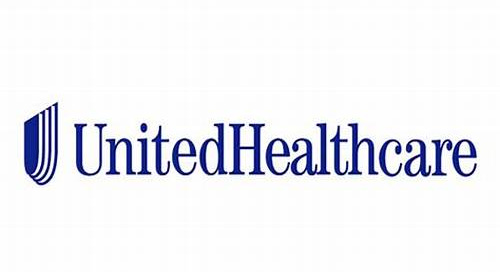UnitedHealth Group (UNH) is a name that doesn’t just whisper but rather roars through the intricate and often bewildering world of American healthcare. This isn't just a large company; it's a sprawling empire. For the full year 2024, we're talking about revenues hitting a colossal $400.3 billion, an 8% increase year-over-year. This is a testament to its diversified model, a behemoth with significant operations in health insurance through UnitedHealthcare and an ever-expanding suite of health services under its Optum brand.
For a long spell, this two-pronged approach, with UnitedHealthcare bringing in $298.2 billion in revenue for 2024 and Optum contributing a hefty $253 billion, looked like an invincible formula for relentless growth and a comforting anchor in any investor's portfolio. But the tide, as it often does, appears to be turning, or at least, the waters have become decidedly more agitated.
The recent news flow has been less than stellar. Whispers, then shouts, of a Justice Department investigation into its Medicare Advantage billing practices have, quite naturally, sent a shiver down the market’s spine. If allegations of inflated risk ratings prove to have substance, the financial repercussions could be significant. Compounding this unease, the company experienced an unexpected change at the helm with CEO Sir Andrew Witty departing and former chief Stephen Hemsley making a return.
Such high-level reshuffles are rarely indicative of calm seas. Then came the withdrawal of its 2025 earnings guidance, which had previously projected net earnings of $28.15 to $28.65 per share. The revised outlook for 2025 now sits at a noticeably lower $24.65 to $25.15 per share. This has, understandably, injected a substantial dose of uncertainty into the immediate forecast. First quarter 2025 revenues did grow by $9.8 billion year-over-year to $109.6 billion, but the revised annual guidance tells a more cautious tale.
It’s hardly a shock, then, that the share price has retreated considerably from its previous zeniths. Investors, it would seem, are factoring in a substantial amount of negative news, and perhaps a little extra for good measure. The narrative has pivoted from one of predictable, robust expansion to a more complex story, shadowed by regulatory scrutiny and internal recalibrations. The medical care ratio for the first quarter of 2025 stood at 84.8%, a slight increase from 84.3% in the comparable quarter of 2024, reflecting some of these pressures.
But is this a signal to abandon ship, or could the current squall be obscuring a more favourable long-term horizon?
UnitedHealth's fundamental operational structure, despite the present turbulence, remains formidable. Its sheer scale, serving roughly 51 million medical members globally as of late 2024, and the integrated nature of its operations across the healthcare spectrum offer considerable competitive moats. The Optum division, in particular, has long been the engine of growth and innovation. In the first quarter of 2025, Optum's revenues reached $63.9 billion, with Optum Rx, its pharmacy benefit manager, showing strong growth with revenues of $35.1 billion. While the Medicare Advantage business, a significant part of UnitedHealthcare's $84.6 billion in revenue for Q1 2025, is under a magnifying glass, it is crucial to remember the breadth of UnitedHealth's operations. Optum Health, for instance, anticipates serving 650,000 new value-based care patients in 2025.
The company has also historically maintained a robust balance sheet, with cash flows from operations for the full year 2024 reported at $24.2 billion, or 1.6 times net income. This financial footing should provide a degree of resilience as it steers through the current challenges. It's also worth noting that even with a dip in annual net income to $14.4 billion in 2024, impacted by significant one-off events like a major cyberattack, the underlying business segments continued to generate substantial revenue.
The pivotal question for those considering an investment now is whether the current market valuation fully discounts the existing risks, or if a broader market overreaction to the succession of bleak headlines has occurred. The gravity of the regulatory investigations and the uncertainty they cast cannot be understated. Regulatory interventions within the healthcare domain can be both potent and notoriously difficult to predict.
Nevertheless, for investors with a sufficiently long-term perspective, the present valuation may indeed merit thorough scrutiny. If UnitedHealth can adeptly manage these regulatory hurdles and achieve stability in its leadership, the inherent strengths of its diversified, large-scale operations – employing nearly 400,000 people – could well reassert themselves. The journey ahead is unlikely to be a smooth ascent, and further market volatility seems almost a certainty. But for those who retain faith in the enduring viability of this healthcare titan and possess the temperament to withstand heightened uncertainty, the current tempest might just be revealing a more appealing entry point than has been evident for some considerable time. It is, unequivocally, a situation that demands careful deliberation and a steady hand.
I believe in the future of this company, and intend to open a position in my personal portfolio at current prices as I do believe the company is significantly undervalued as of today. I will hold these shares unless anything new fundamentally changes the growth prospects and operation of this company in my eyes. For now I would like to see the stock form a base where I can accumulate, as I am not in the business of catching falling knives.
Thank you for reading, and have an amazing day!


